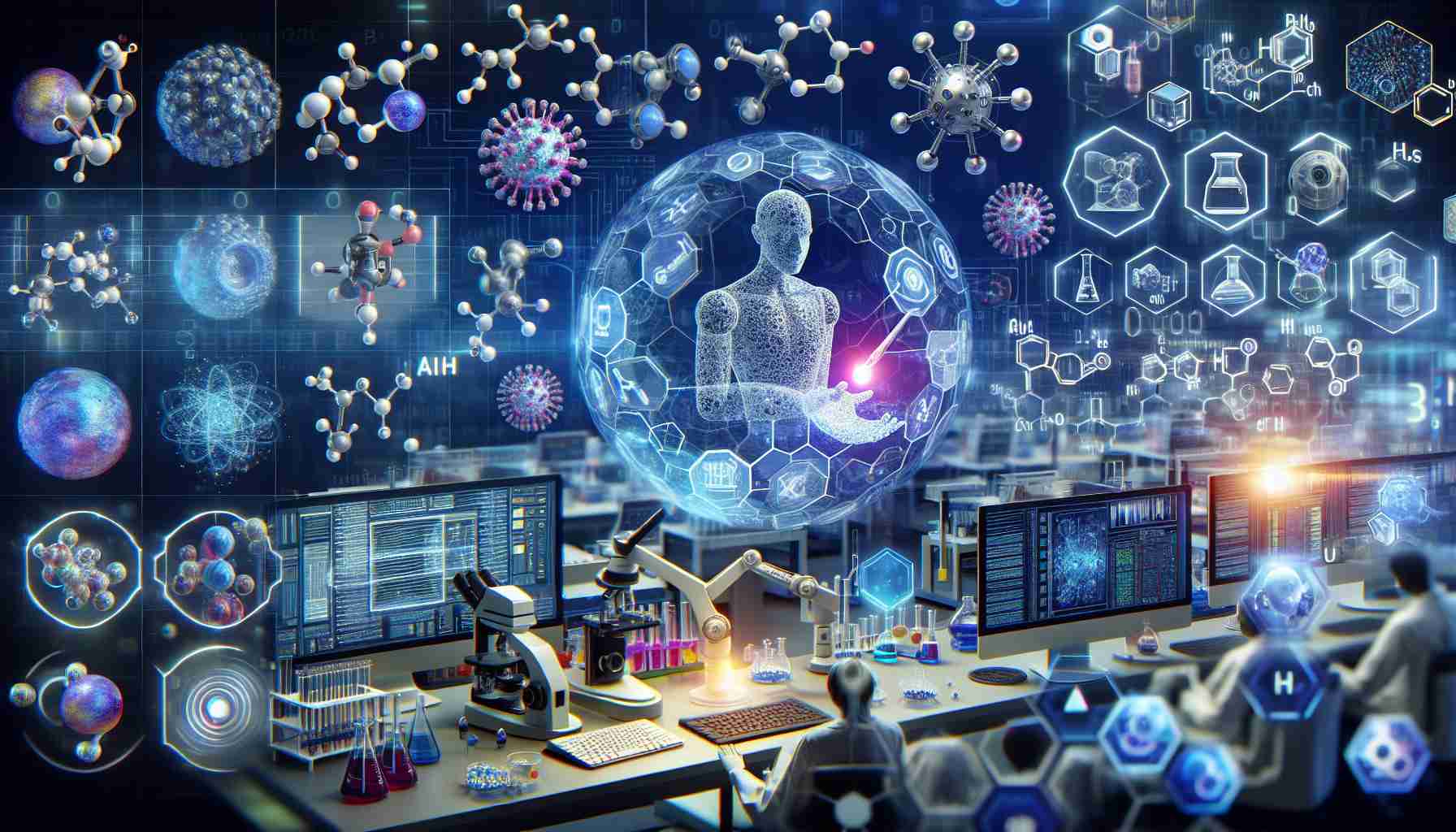The integration of artificial intelligence (AI) into the drug development process is expected to revolutionize the pharmaceutical industry over the next five years, with projections indicating a fivefold growth in this sector, as estimated by MarketsandMarkets. This upward trend is already apparent, as major pharmaceutical companies are increasingly entering into significant partnerships to harness AI for candidate drug selection and assessment.
Initially, there was considerable skepticism regarding the role of AI in drug development. However, in recent years, biotechnology and pharmaceutical firms have recognized the necessity of adopting these transformative technologies, leading to rapid advancements in the field. The CEO of Ardigen, Janusz Homa, expressed optimism about the sustained growth of AI applications within this sector.
One noteworthy innovation is the PhenAID platform developed by a Krakow-based company, which enhances the identification and profiling of small-molecule drug candidates. This platform leverages diverse data inputs, including molecular structures and high-content screening images, to facilitate predictive and generative tasks through user-friendly AI-based workflows.
Growing interest in AI technology is underscored by recent collaborations between pharmaceutical giants and AI solution providers. For example, AstraZeneca has entered a significant partnership with the Israeli startup Immunai, aimed at employing machine learning techniques to enhance patient treatment strategies. Such collaborations signal a broader trend where automated laboratories and robust data generation will likely enhance the drug discovery process’s efficiency, potentially reducing development times and costs while increasing the likelihood of successful outcomes.
Revolutionizing Drug Development: Tips, Life Hacks, and Interesting Facts
The integration of artificial intelligence (AI) into drug development represents a significant shift in the pharmaceutical landscape. As this technology continues to evolve, it offers not only promising advancements but also practical strategies that professionals can employ to streamline their workflows. Here are some tips, life hacks, and interesting facts related to AI’s role in drug development:
1. Leverage AI Platforms for Data Analysis: Utilize AI-driven platforms like the PhenAID system to optimize the identification of drug candidates. These platforms make it easier to analyze large datasets and extract meaningful insights, thus enhancing your research capabilities.
2. Collaborate for Greater Efficiency: Engage in partnerships with tech companies that specialize in AI. Collaborations, such as AstraZeneca’s partnership with Immunai, highlight how combining pharmaceutical expertise with AI technology can lead to innovative treatments and improved patient outcomes.
3. Stay Informed on AI Trends: Regularly update your knowledge about AI advancements in drug development. Subscribing to newsletters or webinars from organizations like Informa Pharma Intelligence can provide insights into emerging technologies and strategies used in the industry.
4. Implement Predictive Modeling: Use AI to run predictive models to assess the potential success of drug candidates early in the development process. This can drastically reduce time and costs associated with the late-stage failures of drug trials.
5. Invest in Training: Equip your team with the skills necessary to leverage AI effectively. Providing training related to data science and machine learning can enhance your organization’s ability to implement AI solutions successfully.
6. Embrace a Data-Driven Culture: Encourage a culture where data-driven decision-making is the norm. This will allow your team to utilize AI more effectively in identifying trends and making informed choices throughout the drug development phases.
Interesting Facts about AI in Drug Development
– The market for AI in drug development is expected to grow fivefold in the next five years, indicating a massive shift in how pharmaceutical companies approach new drug candidates.
– AI technologies can analyze complex biological data far faster than traditional methods, significantly speeding up the drug discovery process.
– Companies are now able to simulate drug interactions in silico, reducing the reliance on animal testing and early-phase clinical trials.
– Major pharmaceutical companies are setting up specialized teams to focus on AI-driven research, indicating a growing recognition of AI’s potential.
In summary, the integration of AI into drug development is not just a trend but a necessary evolution that could improve efficiency and outcomes in the pharmaceutical industry. By adopting these tips and staying informed about the advancements, professionals from this field can better navigate this exciting new frontier. For more about the future of pharmacology and technology trends, visit Pharma.com.








